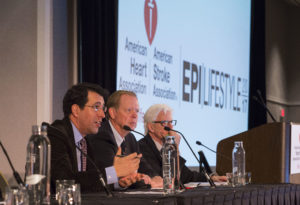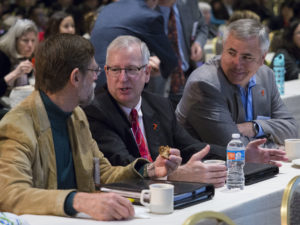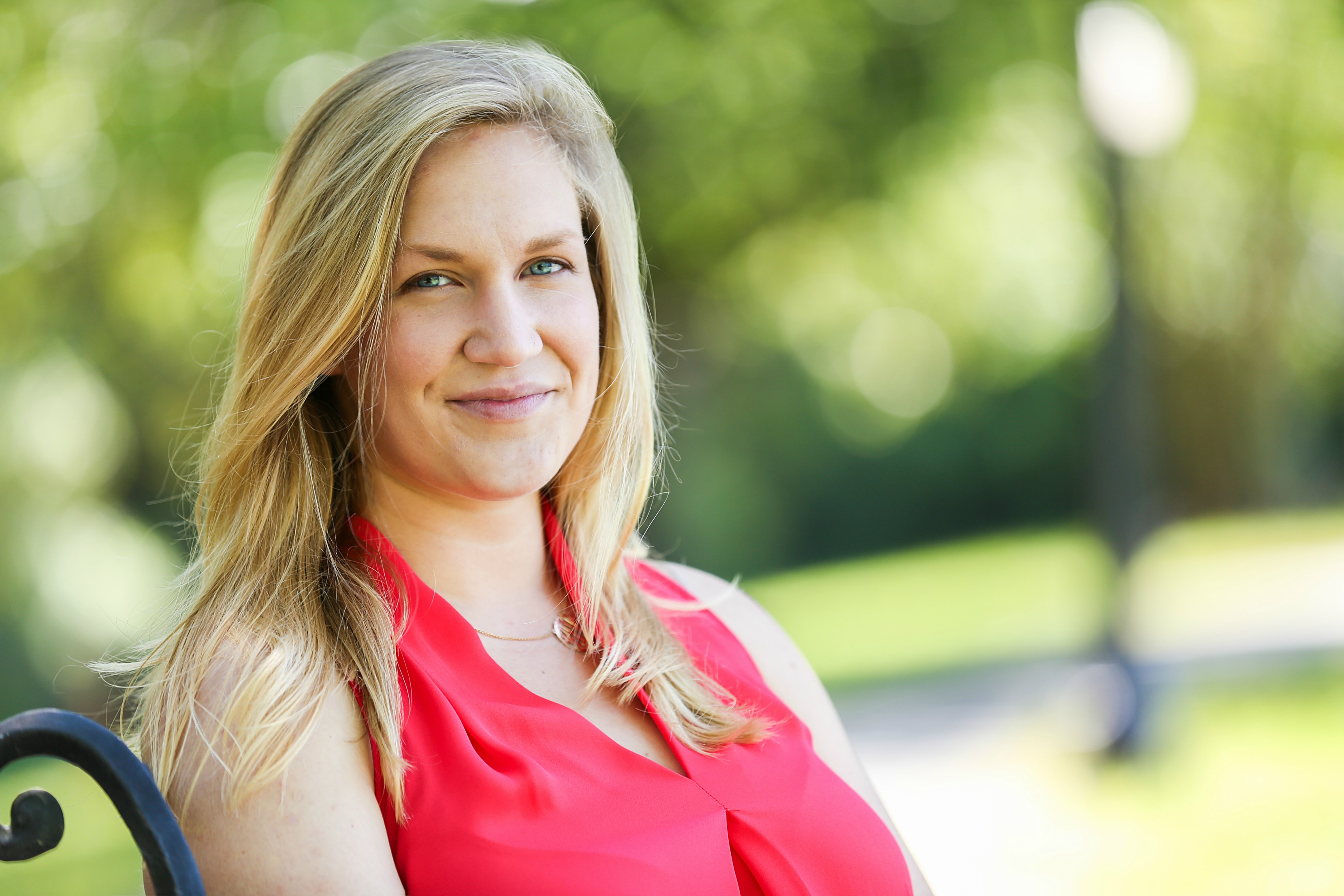“Epidemiology is the study of the causes and distributions of diseases in human populations so that we may identify ways to prevent and control disease.”
(JM Last, A Dictionary of Epidemiology)
In a 2013 commentary, Sandro Galea reminds us of the definition of epidemiology [above] and notes that it “neatly communicates 2 central actions for the field:
- we identify causes so that
- we may intervene….
However, in practice, academic epidemiology now spends most of its time concerned with identifying the causes and distributions of disease in human populations and far less of its time and imagination asking how we might improve population health…”
In a seminal paper in 1985, Geoffrey Rose showed that populations are not the sum of their individuals, highlighting the difference between epidemiology for public health and individual-based medicine. In a recent paper, Dr. Rogawski and coauthors speak to this, pointing out that individual level risk factors identified in population based studies “do not always inform public health interventions since targeting of interventions occurs when individuals present to the healthcare system,” or “medical epidemiology.”
AHA EPI | Lifestyle Scientific Sessions – March 20-23, 2018 (New Orleans, Louisiana)
Later this month, AHA Epidemiology and Lifestyle Councils travel to New Orleans for the annual specialty conference. The theme? Health Promotion: Risk Prediction to Risk Prevention. The 4-day conference will feature 11 sessions, 3 poster sessions, 6 Early Career events, and more. Last year in Portland, Oregon, the conference focused on “Location, Location, Location: Improving Individual and Community Health,” and in 2015 in Baltimore, Maryland “From Precision Medicine to a Culture of Health.” The past 3 years parallel the surge of interest in consequentialist epidemiology, with noted efforts into precision medicine through mHealth interventions as well as theoretical interventions of moving population-wide blood pressure by 1 mmHg.

Drs. Daniel Rodríguez, Wayne Rosamond, and Robert Ross answer questions at Opening Sessions, AHA EPI I Lifestyles 2017 in Portland, Oregon.

Drs. Darwin Labarthe, David Goff, and Donald Lloyd-Jones catch up before opening session in Portland, OR at AHA EPI | Lifestyle 2017. Make sure to get your Life’s Simple Seven pin at your next AHA conference!
Early Career Events at AHA EPI | Lifestyle
Over this past year, I’ve become more active in the American Heart Association than I have in any other member organization and it’s all due to being an Early Career Blogger. After attending Early Career events at AHA Scientific Sessions in November 2017 – from luncheons to networking to panel sessions – I keep my eyes peeled for similar events at all conferences I attend. The focus for Early Career Events at EPI | Lifestyle this year will be on international collaboration in cardiovascular epidemiology through a “speed dating” format session on Thursday, and a roundtable luncheon on Friday. In addition, the Lifestyle Council will host a 3 Minute Thesis (3MT) Competition at their early career lunch, and early Friday morning is “Lost or Found? Identifying your Niche in Academic Research.”
Don’t Miss Out!
Between the coffee breaks, be sure to catch these notable epidemiologists and scientists who will be speaking throughout the week in New Orleans. I think their research and background paint the perfect picture for a conference focused on health promotion.
I’ve included their Twitter handle when I can – so be sure to tweet them your questions, and tag #EPILifestyle18 so we can follow, too!
Health Promotion: Risk Prediction to Risk Prediction, Opening Remarks (Session 1)
Alfredo Morabia, MD, PhD, MPH, MSc is a professor of clinical epidemiology at Columbia University Mailman School of Public Health. His research spans from history of epidemiology and health ethics to urban health projects, such as health of first responders following 9/11. Tweet him @AlfredoMorabia.
Angela Odoms-Young, PhD is an associate professor at the University of Illinois at Chicago and a fellow of the Institute of Health Research and Policy, which aims to advance health practice and policy through collaborative research. Her current research projects at the Illinois Prevention Research Center include policy research and evaluation on environmental change related to nutrition and obesity. Tweet her @OdomsYoung.
Mintu Turakhia, MD, MAS, FAHA is an associate professor of cardiovascular medicine at the Palo Alto VA and Executive Director of Stanford University’s new Center for Digital Health. His research focuses on heart rhythm disorders through outcomes research and clinical practice. Tweet him @LeftBundle.
Hypertension: Guidelines and Prevention, Rapid Fire Oral Presentations (Session 2)
Paul Whelton, MD MSc will recap the new Hypertension Guidelines unveiled at #AHA17 and orient them within the guise of population health and disease prevention.
David Kritchevsky Memorial Lecture (Session 5)
Barry M. Popkin, PhD established the Division of Nutrition Epidemiology at University of North Carolina at Chapel Hill as well as the NIH funded UNC interdisciplinary Obesity Center. He developed the Nutrition Transition theory and studies these dynamic shifts in dietary intake and physical activity around obesity on a national and global scale.
Richard D. Remington Methodology Lecture (Session 9)
Joel Kaufman, MD, MPH is a physician epidemiologist and interim dean at the School of Public Health at the University of Washington. His research focuses on environmental factors in cardiovascular and respiratory disease, and is a PI on MESA Air.
William B. Kannel MD Memorial Lectureship in Preventative Cardiology
Emelia J. Benjamin, MD, ScM, FAHA is a professor at the Boston University School of Medicine and longtime researcher on the Framingham Heart Study. She focuses on the intersection of genetic, epidemiology, and prognosis of cardiovascular conditions and biomarkers, particularly atrial fibrillation. Tweet her @EmeliaBenjamin.

Bailey DeBarmore is a cardiovascular epidemiology PhD student at the University of North Carolina at Chapel Hill. Her research focuses on diabetes, stroke, and heart failure. She tweets @BaileyDeBarmore and blogs at baileydebarmore.com. Find her on LinkedIn and Facebook.